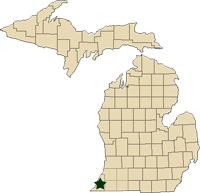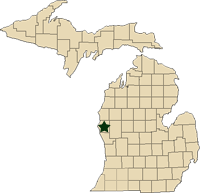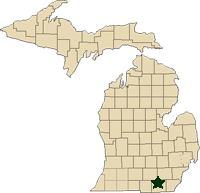Regional reports on Michigan vegetables – May 30, 2012
MSU Extension educators’ pest and vegetable updates for Michigan.
This week’s regional reports:
- Southwest Michigan – Ron Goldy
- West Central Michigan – Norm Myers
- Southeast Michigan – Lina Rodriguez Salamanca
Southwest Michigan – Ron Goldy, Michigan State University Extension
|
Weather
High temperatures for the week ranged from 78 to 97°F and lows from 43 to 70°F. Precipitation for the area was around 0.4 inches for the period. Soil moisture is getting low since we have had less than an inch of rain over the past two weeks and are over 3 inches behind for the year. PET rates have approached 0.3 inches per day and irrigation is being applied in those fields that have it. The period was also quite windy, restricting spray activities to evening and early morning and moving soil. Some damage to transplants has been observed.
Crop reports
Asparagus harvest will be complete by the weekend and growers will be applying herbicides.
Harvest of early planted peas will begin soon.
Early planted sweet corn is at the 6 to 8 leaf stage and subsequent planting continues.
Pepper and eggplant transplanting continues.
Harvest of tunnel-grown summer squash and zucchini will begin this week. There has been concern over lack of male flowers in some of these plantings. Direct seeding in unprotected fields continues.
Tomatoes under tunnels have 1- to 2-inch fruit. Transplants continue to be set out and plantings are being staked and pruned.
Early planted potatoes are in bloom. No significant Colorado potato beetle levels have been observed.
West Central Michigan – Norm Myers, Michigan State University Extension
|
Weather
Some rain fell across our area over the weekend, totaling from half an inch (southern areas) to an inch (northern areas.) Soils are still fairly dry and the amount of rain we had shouldn’t interfere with planting operations. High winds continue to make spraying difficult.
Oceana, Newaygo and Mason counties
Harvest of asparagus continues, but heat and dry soil conditions have reduced both spear size and spear diameter over the last week. We are hopeful that the rain we had over the weekend combined with cooler temperatures will rejuvenate fields and allow harvest to continue for at least a couple more weeks. Growers are shutting down 2010 plantings. No major pest problems reported in asparagus, but weeds are beginning to come on in fields now that the temperature has warmed up.
Weed control continues in carrots, with most cover crops already sprayed off. Planting of processing zucchini is in full swing. Irrigation continues to be used where available.
Muck vegetable growing areas in Ottawa, Kent and Newaygo counties
No major changes reported in crops like celery and onions. Aster leafhoppers continue to be a challenge, particularly at this year’s lower threshold. Numbers are so large in surrounding cover that it is difficult to keep fields below threshold.
Southeast Michigan – Lina Rodriguez Salamanca, Michigan State University Extension
|
Weather
Air temperatures ranged from 46.2 on May 27 to 81.4°F on May 28. Rain has been scarce – only 1.81 inches have accumulated since May 26 according to Enviro-weather. In the southeast at the Petersburg station, 45 to 51 degree days have accumulated in the last seven days.
Crops
Peppers and tomatoes have been transplanted in the field. There are still some cabbage and tomatoes in greenhouses waiting to be planted in the fields.
In the field, no cabbage downy mildew has been observed, however diamond back moths have been observed in several fields in Monroe County. Some growers reported loopers in cabbage. It is important to remember that looper damage can be mistakenly confused with diamond back damage and the looper larvae look somewhat like the imported cabbage worm. Maggots present in cabbage fields were identified as corn maggots.
Leafhopper counts were low (one leafhopper per 100 sweeps) on carrots in Washtenaw County and potatoes in Monroe County. Leafhoppers have been especially important in west Michigan, but currently are not found in high numbers in southeast Michigan. Scouting will continue. Read MSU’s Zsofia Szendrei’s article, Aster leafhoppers are abundant in Michigan, for more information.
Cucurbits in Monroe County are bearing flowers and the vines look healthy.
Cucurbit downy mildew counts at the Frankenmuth and Monroe sites are low. Remember to keep up to date with the daily spore trap count. Cucumbers and melons are the crops most impacted by downy mildew. See the cucurbit downy mildew spray recommendations. Read MSU’s Mary Hausbeck’s article, Influx of cucurbit downy mildew sporangia detected in eastern Michigan, for more information.



 Print
Print Email
Email





